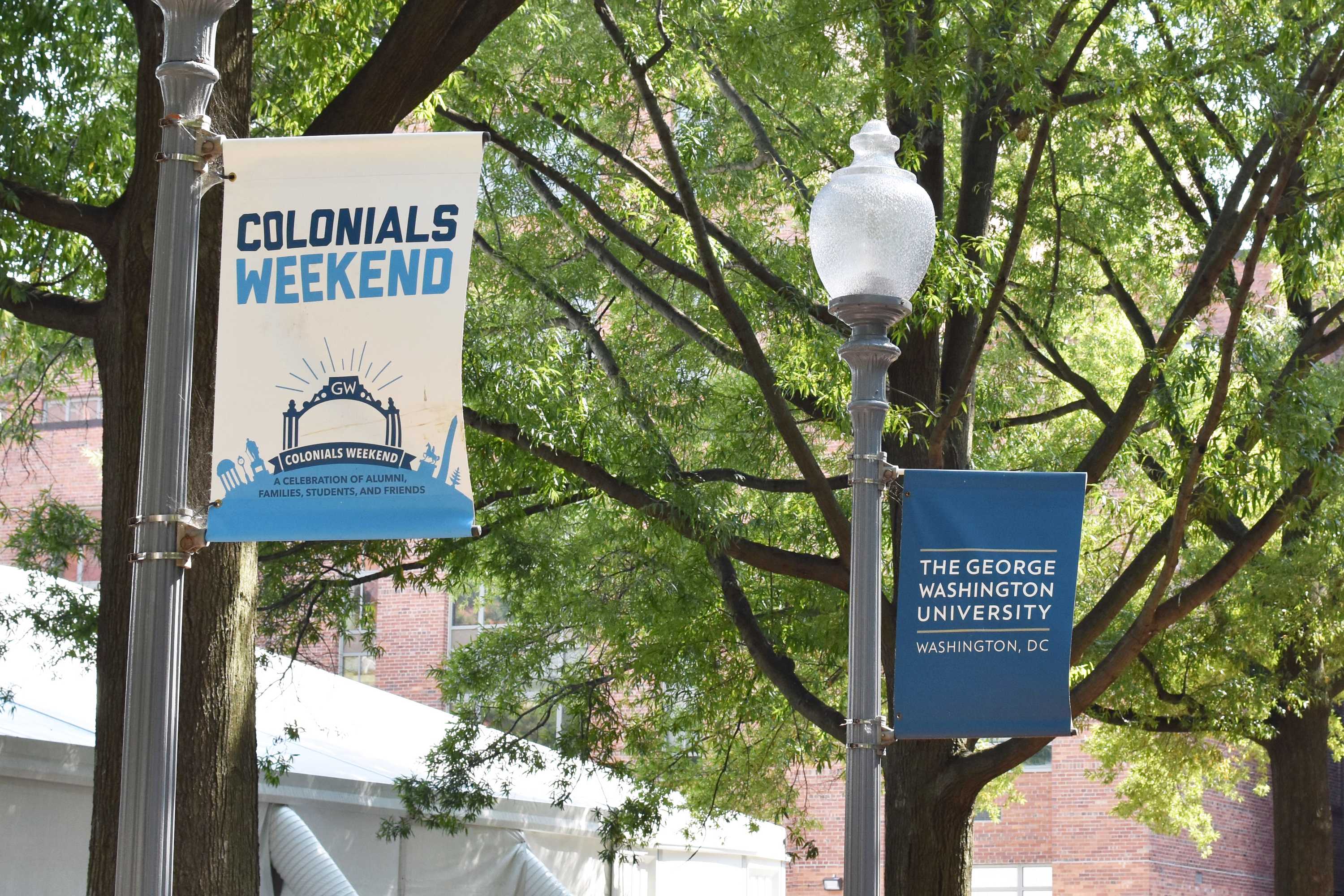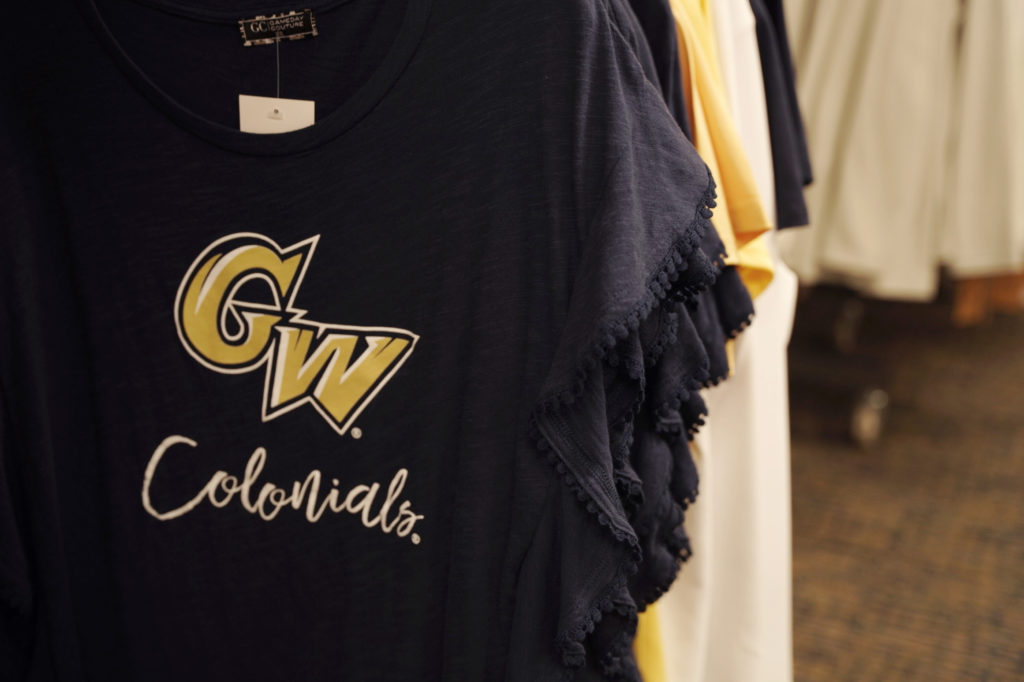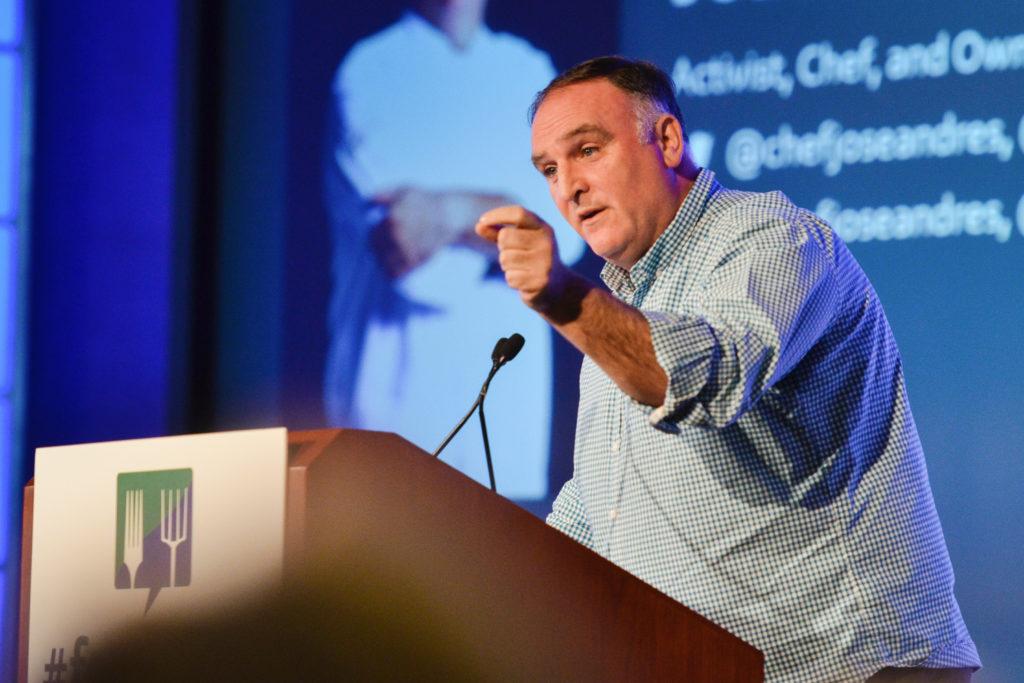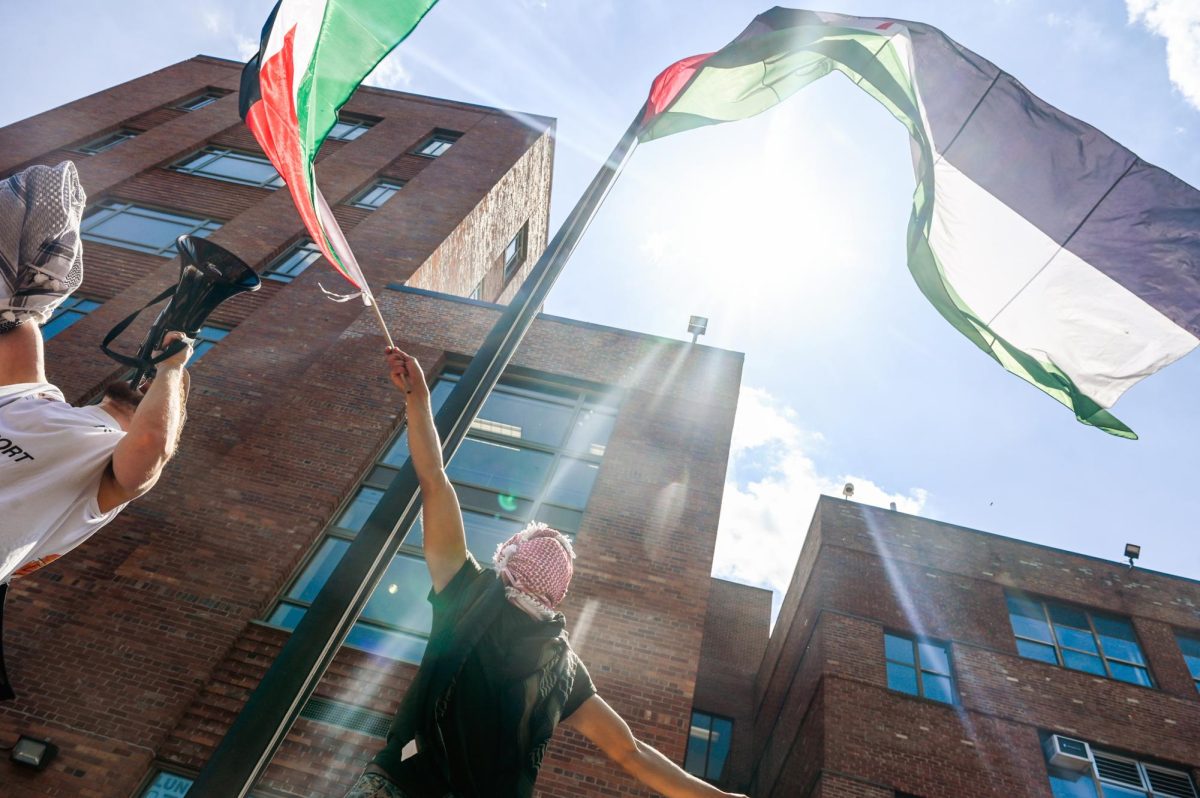The Board of Trustees is expected to vote later this spring whether to ditch the Colonials moniker, but many Colonials-branded events, organizations and locations on campus have already abandoned the decades-old symbol.
Board Chair Grace Speights said in October that trustees plan to reach a decision on whether to retire the moniker by the end of the academic year. Speights made no direct mention of the Colonials decision at Friday’s Board meeting but said the executive committee had recently met to consider “naming decisions.”
As the GW community awaits a final verdict on the monumental decision, some facets of campus have already abandoned the Colonials logo.
A program connecting students and graduates, once called Coffee with Colonials, was changed to Coffee with Alumni in fall 2019. At about the same timeframe, student leaders changed the name of GW’s fan section from Colonial Army to George’s Army, and Colonial Central became the Student Services Hub.
The gradual distancing from the Colonials brand hasn’t been an official policy, and the changes were often made in conjunction with broader overhauls of those programs. Students had previously participated in orientation activities throughout the summer at Colonial Inauguration, but officials dubbed the program New Student Orientation when the events were revamped in 2019, consolidating them to a singular session in August for the entire incoming class.

File Photo by Alexander Welling
Officials rebranded Colonials Weekend as Alumni & Families Weekend last year.
But eliminating the moniker completely would still be a major shift. Colonials branding is still recognizable in many areas of campus, particularly for GW’s athletics teams.
That final decision now rests with trustees.
Interim University President Mark Wrighton said in an interview Friday that administrators are preparing a “process” to implement the Board’s vote either way, which could happen at their May meeting. But he cautioned that trustees had not yet made a decision and were weighing mixed opinions in the GW community.
“It’s very split,” Wrighton said. “There are a large group of survey respondents who said we should change and an essentially equal number saying we should not change.”
The process follows a framework the Board approved in June 2020 to consider naming questions to GW’s buildings and memorials. Under the framework, officials established a committee the next month to evaluate the Colonials moniker based on six considerations, like the history of the moniker and the “depth and breadth” of harm caused by the use of the term.
The Colonials committee delivered their recommendation to trustees last year, but officials have yet to make its final report public. Wrighton, who became University president after the recommendation was sent to the Board, said he had seen the committee’s suggestion.
“I’m not unaware of the conclusion from that,” he said.
The framework has already led to the decision to rename the Marvin Center as the University Student Center last summer after following a similar process, and GW community members have submitted six other requests that will be considered after the Colonials decision. Officials are due to review requests to rename Fulbright, Madison, Monroe, Francis Scott Key halls, the Churchill Center and the William P. Barr Dean’s Suite in GW Law.
The push for the requests has largely come from students, with debates over the Colonials moniker dating back years.
After a resurgence in student advocacy about the issue, students narrowly passed a referendum in 2019 calling for the retirement of the moniker. Then-Student Association President SJ Matthews issued an executive order that September creating a “Colonial Moniker Task Force” to research replacements.
SA President Brandon Hill invoked the looming Colonials decision at Friday’s Board meeting as he highlighted recent success stories from student advocacy, like GW’s enrollment in the U-Pass program last fall. Hill had served on the Colonials committee that prepared the recommendation for trustees.
“Call me an optimist, but I soon imagine a University where students can voice their concerns and not have to wait for 15 years for change,” Hill told trustees. “And yes, I’m referring to the Colonials moniker.”
Henry Huvos and Isha Trivedi contributed reporting.








